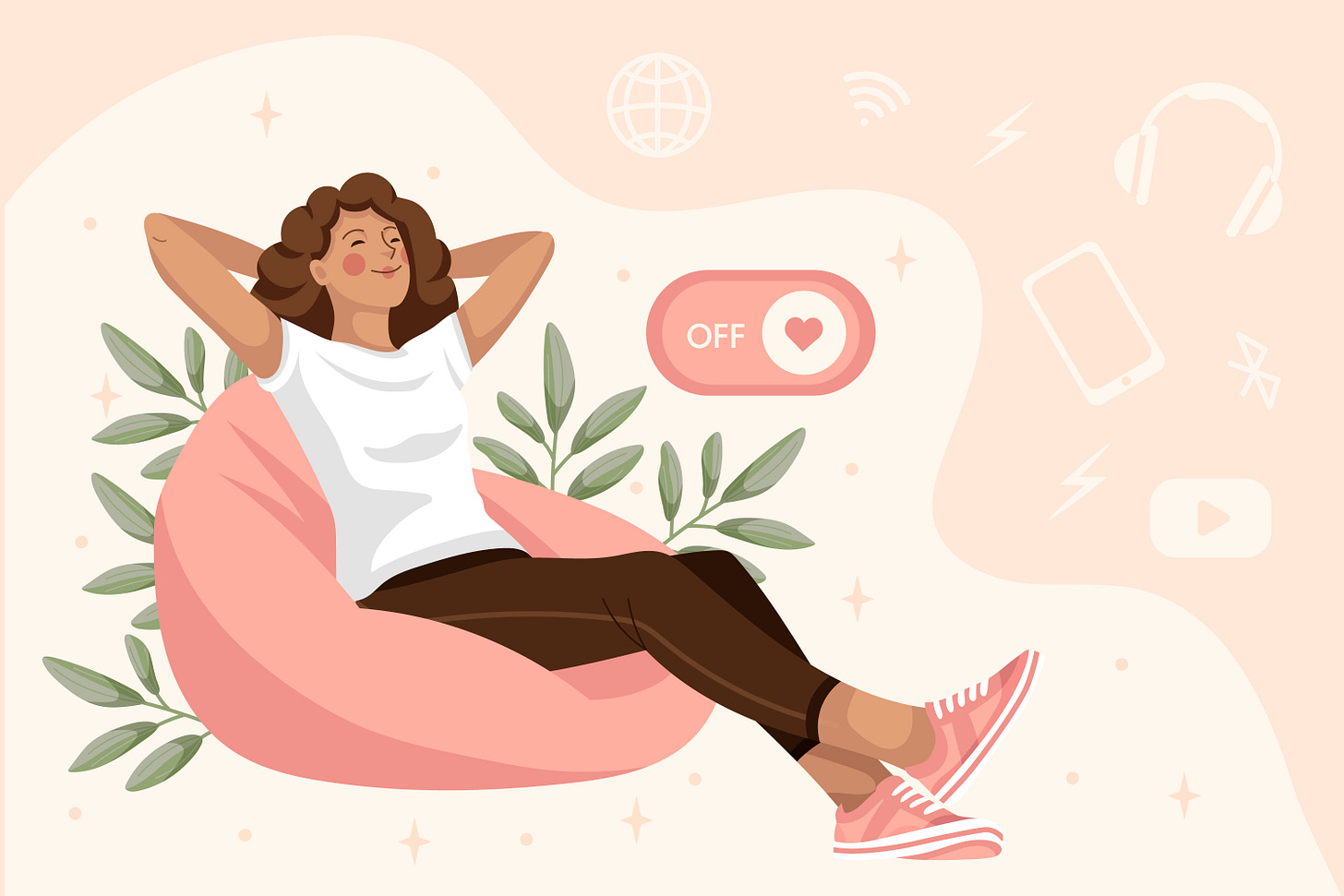No Thanks, I'm Okay With Being Mediocre
The self-optimization industry and why it's an issue to optimize every single second of your life.

Lately, I’ve been getting into a lot of self-help content. Like, a LOT of it.
And who can blame me? It’s everywhere. It’s on Instagram, TikTok, emails, books (so many self-help books), so much to the point that it’s definitely a lot. And it can become an obsession if I’m not careful.
My self-help journey started two years ago when I started to become a legit adult with bills to pay and food to buy, but saw myself struggling with work and personal responsibilities (not to mention trying to take care of my mental health).
I was also undergoing a lot of life changes (aka graduating college and getting a job), and when I found self-help podcasts and books, I thought, yes. This is the answer to my problems. I am going to become the best human being ever and accomplish so much!!
Lmao, I was so wrong. Yes, reading self-help books and subscribing to self-help newsletters did make me more motivated to become a better, more easy-going person, but it didn’t remove my anxiety. I still felt sad and overwhelmed when I had too much on my plate. Now I know that the issue wasn’t me and my “inability” to optimize my life to the core. It’s just that life is unpredictable and messy sometimes.
And I still make mistakes. Occasionally I will drive to the wrong grocery store to pick up my groceries, and for some reason, I have this irrational fear that if I carry my keys with me while taking my garbage out to the dumpster I will accidentally throw away my keys instead. (it hasn’t happened… but… it could.)
It’s natural for people to want to become better. But I want to briefly dive into why people want to optimize every part of their lives, and if this is sustainable.
Is it healthy to optimize every part of my life?
So, I want people to know that I don’t think that all parts of the self-help industry are toxic. There are actually some wellness and life coaches who do want to help others live a better, balanced life.
What I think isn’t great is that there’s this preconceived notion that we all should become optimized humans/robots who know everything we need to do each day.
I don’t know exactly where this idea comes from, but it might be because of how much social media has been used to glamorize our lives, and how some people only talk about the glitzy parts of finding the routine that works for them and completely ignore talking about the struggle it took to find that routine.
And it’s possible that the self-help industry makes people more depressed and anxious than they were at the beginning.
The article I linked above from Mark Manson (yes, I know he’s also a self-help writer, but bare with me on this) talks about myths the industry tells you, like “you need to read this book to be enough,” or “you need to work harder to get to that point in your life.” That the “problem” is you, and it’s all in your head.
Honestly, it’s all false. It perpetuates the need to hustle, grind, and work more in our lives to get from point A to point B, when really we’re okay. We’re right where we need to be, and we’re already tired.
What happens if I don’t optimize my life and become… mediocre?
Everyone has different ways of living life and being productive. One Notion template to organize each day’s tasks may not work at all for one person, but be a life-saver for someone else. And I don’t think that gets talked about enough.
If an Excel sheet you found from a life coach on TikTok doesn’t work for you, it doesn’t mean you’re defective, or mediocre, whatever that means nowadays. It just might mean you need to find another strategy that’s more tailored to you.
What does being mediocre even mean? Not wanting to burnout every week? Doing what makes you happy? Living on a beach?
I think society has mixed up the meaning of mediocre to mean not wanting to work 100% every day for the next 60 years. And I don’t think that’s mediocre. I think that’s healthy.
Women, especially women of color, have been told for years that the only way they need to succeed is by working harder. Not only in work, but also as a mother, partner, etc. The self-help industry can also push this narrative, and we all know that’s not it.
Instead, we can try other methods. Yes, we can try out routines that work for us in this busy age but we can…
Focus on accepting where we are, even if it’s in a place of discontent.
Finding one hobby we love to do and sticking with it. That might mean feeling 1000x guilty about it, but at least we’re resting.
Asking ourselves, “What’s most important right now?” or “Why do I feel myself getting distracted?”
EMBRACE MESS. People, especially those who are neurodivergent, may feel like they live in the mess. That’s fine, because life is messy anyway.
Our lives can’t be controlled 24/7, but at least we can step back and see that we have more control than we think.



